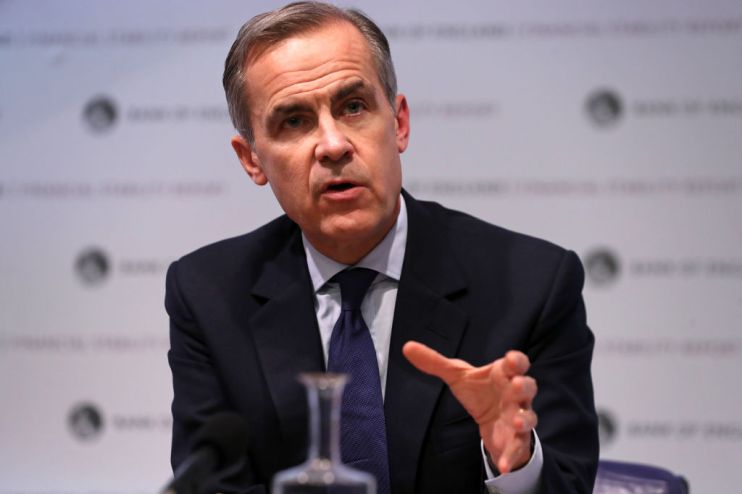City economists urge Bank of England to avoid interest rate cut

For the whole of 2019, the Bank of England’s monetary policy committee (MPC) held interest rates steady despite a slowing economy as parliament wrestled with Brexit.
Yet with Britain now leaving the EU, there is a real possibility the MPC will cut rates for the first time in four years tomorrow, in what will be Mark Carney’s last decision as governor.
The most recent growth figures were the worst for seven years, inflation is stubbornly low and policymakers have been making dovish noises.
However, City A.M.’s shadow MPC – made up of top economists from across the City – has today cautioned Threadneedle Street against lowering rates from 0.75 per cent.
Many members cited the rise in business optimism and output in various surveys since Boris Johnson’s emphatic election victory in the middle of December, which cleared some economic uncertainty.
Others said there would be no harm in waiting to see what the new year brings the economy. The three votes for a cut was the most in many months, however, signalling a growing divide over the direction of policy.
Here’s what the shadow MPC said:
Guest chair: Erik Norland – CME Group
Cut: The BoE is running out of excuses not to ease policy. Core inflation plunged to 1.4 per cent year over year. The manufacturing sector is contracting. Service and construction sectors are showing, at best, slow growth. While December’s election removed some of the uncertainty that was holding back growth late last year, the outcome of Brexit remains unclear. Negotiations regarding the future of the UK’s trading relationship with the EU could weigh on growth in 2020. With above-target inflation a distant prospect, the BoE should consider cutting rates.
Ruth Gregory – Capital Economics
Hold: The jury is still out on whether the jump in sentiment will lead to a step change in activity. It makes sense to hold off for the time being to see how things pan out.
Tej Parikh – Institute of Directors
Hold: With business activity gaining some momentum, the labour market in rude health, and a fiscal boost in the pipeline, there should be a rain-check on a rate cut despite the weak end to 2019.
Simon Ward – Janus Henderson
Cut: Better post-election news will prove short-lived unless accompanied by monetary acceleration. The MPC has access to December monetary numbers and should ease unless these show a significant pick-up.
Frances Haque – Santander
Hold: January flash PMIs, more positive labour market data and more buoyant survey responses provide a positive enough start to 2020 to avoid a cut and wait for the outcome of the trade negotiations.
Peter Dixon – Commerzbank
Hold: A tight call but we can afford to wait and see whether the recent sentiment rebound translates into stronger real activity. It also gives the incoming governor some additional policy leeway.
Vicky Pryce – Cebr
Cut: Despite some signs of a confidence bounce following removal of political uncertainty, inflation remains well below target and given lacklustre performance in 2019 economy needs support while trade worries continue.
Mike Bell – JP Morgan Asset Management
Hold: With a significant increase in fiscal spending on the way and business surveys suggesting the economy is picking up, a cut doesn’t seem necessary.
Jeavon Lolay – Lloyds Bank
Hold: Recent political developments, domestically and abroad, offer grounds for cautious optimism. It appears prudent to wait to see how the expected recovery in UK activity takes shape before changing policy.